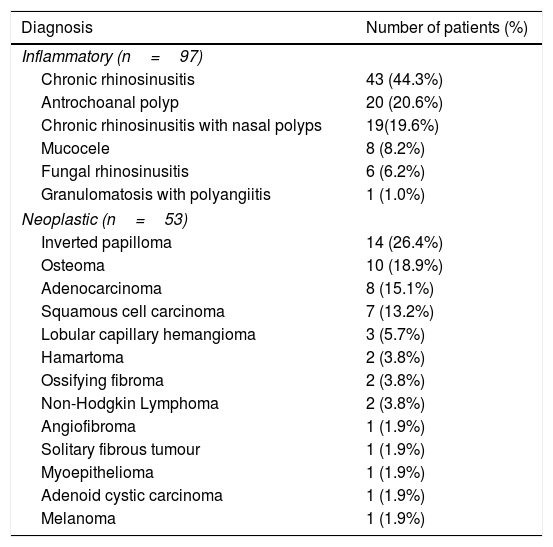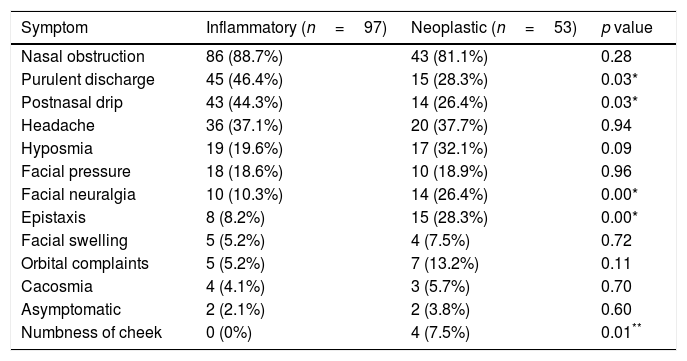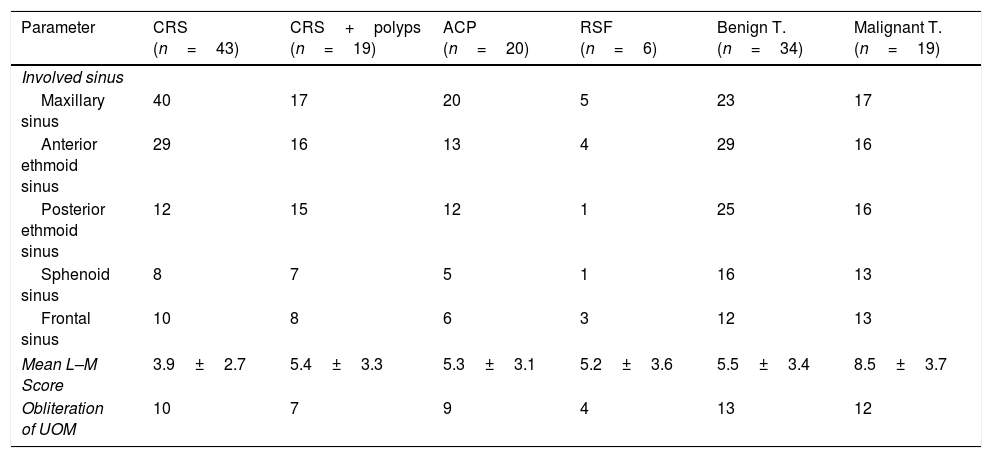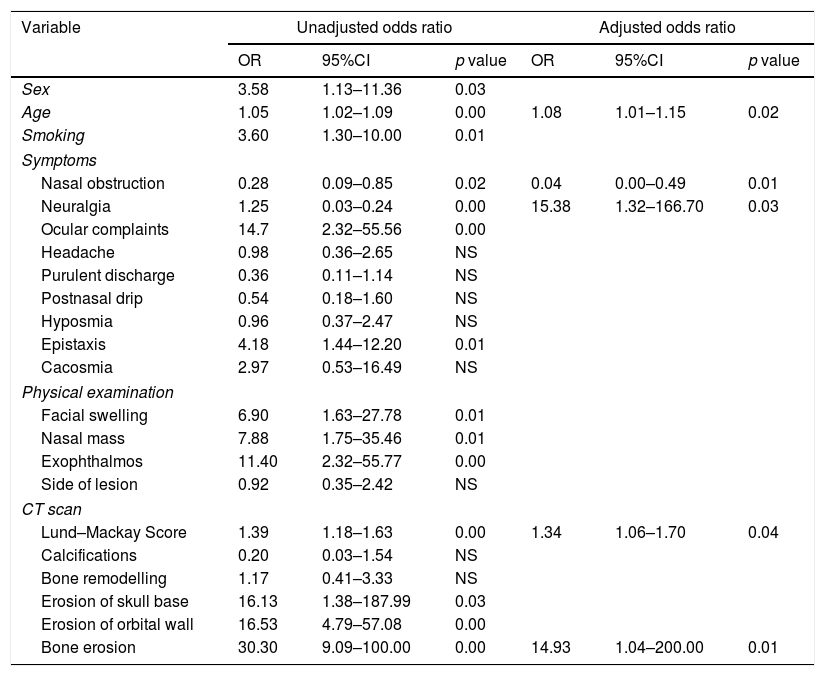Unilateral sinonasal disease is commonly encountered in practice and represents an issue of major concern since neoplasms may mimic inflammatory conditions. This paper aims to describe the demographic, clinical and radiological patterns of unilateral pathologies and, accordingly, to establish a guiding algorithm for diagnosis and management.
Material and methodsWe conducted a retrospective review of medical records of patients with unilateral sinus opacification on CT scan who underwent endoscopic nasal surgery in our department from January 2011 to December 2017.
ResultsOf the 150 patients included, 97(64.7%) and 53(35.3%) had inflammatory and neoplastic pathology, respectively. In the neoplastic group, malignancy was present in 35% of patients. Neoplastic conditions were more common in males (p=0.02) and older patients (56±18 years vs. 38±18, p<.01). Nasal mass or polyp was observed in 56.7% patients. Chronic sinusitis was the most prevalent inflammatory condition, whereas inverted papilloma and osteoma were the most frequent neoplasms. Facial neuralgia, paraesthesia, epistaxis and, on CT scan, superior Lund–Mackay scores, bone remodelling and erosion were significantly more common in neoplastic conditions. Excellent agreement between punch biopsy and postoperative histological results was obtained (k=.883, p<.001).
ConclusionA sequential and careful management of unilateral lesions is mandatory. Based on our experience, we propose that, as routine, physical examination should be complemented with nasal endoscopy, CT scan and punch biopsy, in case of visible mass. Although clinical and radiological information might raise suspicion of some conditions, final diagnosis can only be established with histological examination of the surgical specimen.
La patología nasal unilateral es común en la práctica clínica y causa preocupación ya que las neoplasias pueden mimetizar las condiciones inflamatorias. Este trabajo pretende describir los patrones demográficos, clínicos y radiológicos de las patologías unilaterales y establecer un algoritmo para el diagnóstico y manejo.
Material y métodosRevisión retrospectiva de los registros médicos de pacientes con opacificación sinusal unilateral en la TC sometidos a cirugía nasal endoscópica en nuestro servicio desde enero de 2011 hasta diciembre de 2017.
ResultadosDe los 150 pacientes incluidos, 97(64,7%) y 53(35,3%) presentaban patología inflamatoria y neoplásica, respectivamente. En el grupo neoplásico, la malignidad estaba presente en el 35% de los pacientes. Las condiciones neoplásicas fueron más comunes en hombres (p=0,02) y pacientes mayores (56±18 años vs. 38±18, p<0,01). Se observó masa nasal en el 56,7% de los pacientes. La sinusitis crónica fue la afección inflamatoria más prevalente, mientras que el papiloma invertido y el osteoma fueron las neoplasias más frecuentes. La neuralgia facial, la parestesia, la epistaxis y, en la TC, las puntuaciones superiores de Lund-Mackay, remodelación y erosión ósea fueron significativamente más comunes en los trastornos neoplásicos. Se encontró una excelente concordancia entre la biopsia por punción y los resultados histológicos postoperatorios (k=0,88, p<0,01).
ConclusiónCon base en nuestra experiencia, proponemos que, el examen físico se complemente con endoscopia nasal, TC y biopsia, en caso de una masa visible. A pesar de que la información clínica y radiológica puede generar sospechas de algunas afecciones, el diagnóstico final solo se puede establecer con el examen histológico postoperatorio.













